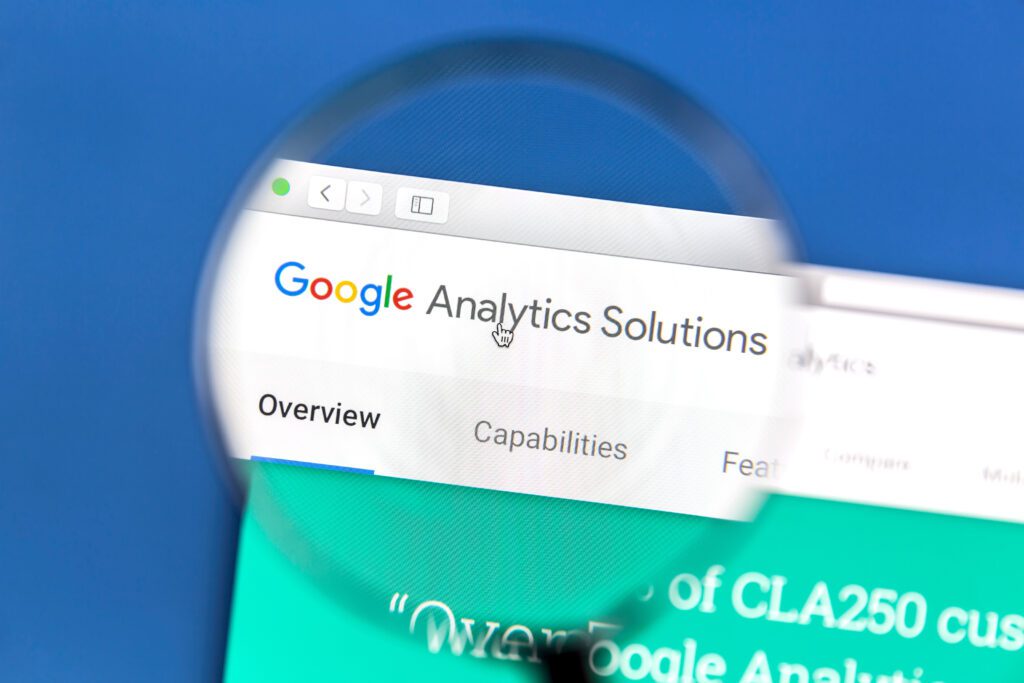In the ever-evolving digital landscape, data plays a crucial role in understanding user behaviour and making informed business decisions. For years, Google Analytics has been the go-to tool for analysing website performance and gaining insights into audience engagement. However, as technology advances and consumer expectations evolve, Google has introduced a new and more powerful analytics platform – Google Analytics 4 (GA4), replacing the traditional Universal Analytics.
In this blog post, we’ll explore the key changes brought about by GA4 and why embracing this upgrade is essential for businesses seeking to stay ahead in the data-driven era.
- A Shift Towards User-Centric Measurement: One of the most significant changes in GA4 is the shift from session-based measurement to a user-centric model. Universal Analytics primarily focused on individual sessions, providing insights into pageviews, session duration, and bounce rates. GA4, on the other hand, places greater emphasis on understanding the behaviour of individual users across multiple devices and touchpoints.This transition allows businesses to gain a holistic view of customer journeys and uncover valuable insights into user engagement and conversion paths.
- Enhanced Cross-Device Tracking: In today’s multi-device world, consumers often interact with businesses through various touchpoints, such as smartphones, tablets, and desktop computers. GA4 leverages machine learning algorithms to enable more accurate cross-device tracking, allowing marketers to attribute user actions across different devices to a single user.This enhanced tracking capability provides a more comprehensive understanding of customer behaviour, facilitating personalized marketing campaigns and improved user experiences.
- Privacy-Centric Design: As data privacy concerns continue to gain prominence, GA4 addresses these challenges by offering a privacy-centric design. GA4 incorporates new features and controls that align with evolving data protection regulations and industry best practices.Enhanced consent management, data retention controls, and the ability to configure data collection to respect user privacy preferences are some of the privacy-focused features of GA4. By prioritizing user privacy, businesses can build trust with their audiences and ensure compliance with privacy regulations.
- Integration with Google Marketing Platform: Google Analytics 4 seamlessly integrates with the Google Marketing Platform, allowing businesses to gain a more comprehensive view of their marketing efforts. Integration with tools such as Google Ads, Search Console, and Display & Video 360 provides marketers with a unified data ecosystem, enabling more accurate attribution and better optimization of marketing campaigns.This constructive collaboration empowers businesses to make data-driven decisions across their marketing channels and unlock new opportunities for growth.
- Advanced Analysis and Insights: GA4 introduces several new analysis features, empowering businesses to delve deeper into their data. The platform incorporates advanced machine learning capabilities to automatically surface valuable insights and trends. Explorations, a new feature in GA4, enables businesses to create custom data visualizations, perform ad-hoc analyses, and uncover hidden patterns.These advanced analysis features equip businesses with the tools needed to extract actionable insights and drive strategic decision-making.
As businesses navigate the ever-changing digital landscape, adapting to modern technologies and staying ahead of the competition is crucial. The transition from Universal Analytics to Google Analytics 4 represents a significant step forward in the field of data analytics.
With its user-centric approach, enhanced cross-device tracking, privacy-centric design, and integration with the Google Marketing Platform, GA4 empowers businesses to gain a deeper understanding of their audiences and make data-driven decisions.
Embrace the future of analytics by embracing Google Analytics 4. By leveraging its advanced analysis features, businesses can unlock valuable insights, optimize marketing efforts, and deliver personalized user experiences.
The shift from Universal Analytics to GA4 marks a new era in data analytics, enabling businesses to thrive in the data-driven world of tomorrow.
